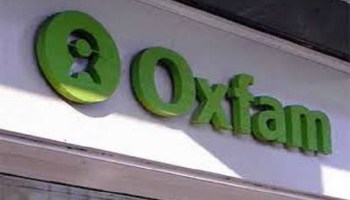For the second consecutive time, Nigeria on Tuesday was ranked by Oxfam International, a confederation of 20 independent charitable organizations focusing on the alleviation of global poverty, as the country with the highest inequality among its citizens.
The organization, in its latest report on index, indicated that Nigeria’s social spending (on health, education and social protection) remained shamefully low with the attendant very poor social outcomes for its citizens.
For instance, Oxfam stated in the report that “one in 10 children in Nigeria does not reach their fifth birthday, and more than 10 million children do not go to school. Sixty percent of these are girls.”
The index, which was released yesterday at the Annual International Monetary Fund and World Bank Meetings in Bali, Indonesia, titled ‘Commitment to Reducing Inequality Index (CRI Index)’ showed that in the past year, Nigeria recorded increase in the number of labour rights violations while its minimum wage had not reviewed upward since 2011 and her social spending remained stagnated.
The CRI Index also reflected further that there was still significant potential for Nigeria to raise and collect more tax but scored very badly on this aspect too.
However, the report stated that there had been improvements in Nigeria’s tax revenue this year but that the impact of the recent improvement would be captured in the 2019 CRI.
The report stated further: “The IMF has given clear advice on the importance of tackling inequality, referring to Nigeria’s score in the CRI Index. The president of the country has also said that tackling inequality is important, as inequality leads to political instability. Yet little has been done.”
According to the report, Denmark ranked highest in this year’s CRI Index with the highest score. The country has some of the most progressive taxation policies in the world, the best labour market policies, and its protection of women in the workplace is the best in the world.
The index ranked 157 countries on their policies on social spending, tax, and labour right, three areas that the group believes are critical to reducing inequality globally.
Other countries with high inequality ranking such as Nigeria include Uzbekistan-156, Haiti-155, Chad-154 and Sierra Leone -153.






